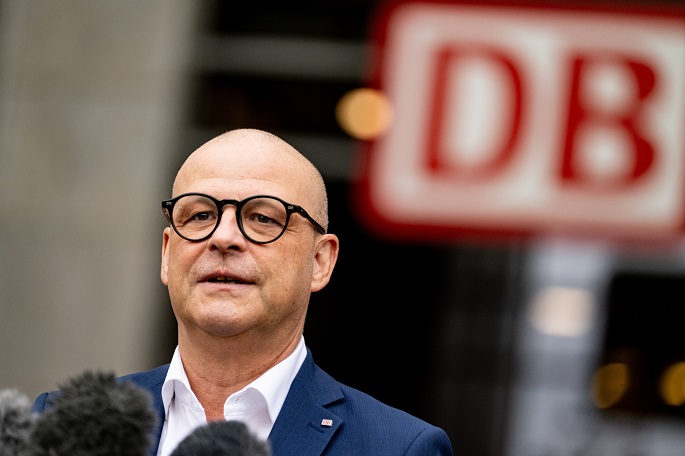German rail offers flexible working to train drivers in dispute
Published : 05 Jan 2024, 23:15
Updated : 05 Jan 2024, 23:21
Germany's state-run rail operator, has come up with a flexible working offer for train drivers amid a wage dispute with their GDL union, DB human resources head Martin Seiler said.
"In order to find a good compromise, we want to talk together about new ways of organizing working hours intelligently and in line with the times," Seiler said on Friday.
It is the first time DB has taken up the union's core demand for a reduction in working hours.
"We intend to negotiate on additional models of choice for shift work," Seiler told the Süddeutsche Zeitung daily. "They will then be able to work only 35 hours instead of 38, or 40 hours. Everyone will get to choose."
Those opting for a shorter working week would have to accept deductions from the wage increase agreed under collective bargaining, Seiler said. "That's already the case where staff opt for additional leave," he said.
The offer has already been put to the GDL, indicating that DB is for the first time prepared to talk to the union on one of its core demands.
GDL boss Claus Weselsky is calling for a cut in the working week for shift workers to 35 hours from currently 38, but at full pay.
The company already operates optional different working-hour models, and the current offer aims to extend the system.
Last month, Weselsky said the GDL was planning strikes lasting between three and five days for 2024 to back up its demands for increased pay and reduced working hours.
Since the start of wage talks at the beginning of November, it has brought passenger trains to a standstill twice with 20 and 24-hour strikes.
These short-term "warning strikes" are a key union tactic in Germany, permitted under the law when talks break down. They can escalate into an all-out strike.
There will not be any strikes by the GDL on Monday or Tuesday, the head of Germany's Civil Servants' Union (DBB) said, due to the DBB's annual conference during that time.
"I agreed with Claus Weselsky before Christmas that there would be no strikes during the conference in Cologne," Silberbach told the Friday edition of the Kölner Stadtanzeiger newspaper.
"The arrival and departure is guaranteed. What happens afterwards is no longer in my hands." The GDL is a member of the DBB. Weselsky is expected to attend the conference on both days.
The GDL had ruled out further industrial action over Christmas and the New Year after two rounds of strikes. According to Weselsky, this so-called Christmas truce should last until Sunday. Strikes would then be possible again from Monday.
Following a ballot among GDL members, these could be significantly longer than the most recent strikes in the wage dispute.


